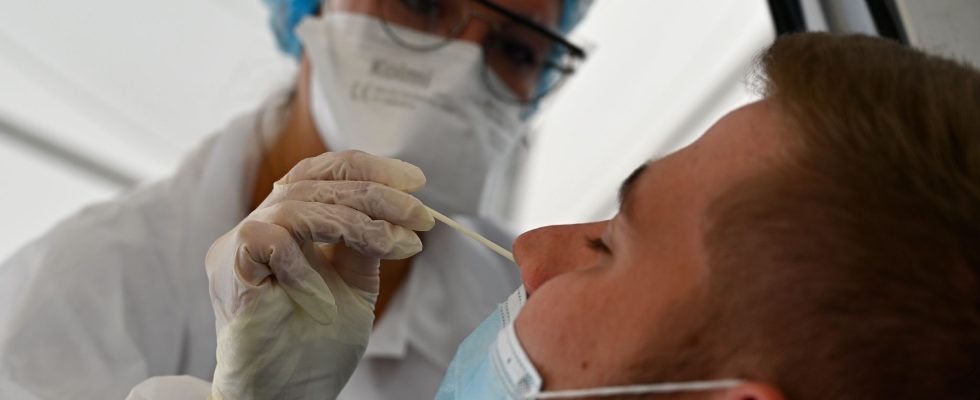The discomfort is fleeting, the matter of a few seconds, but very often unpleasant. What if swab testing is soon outdated? Instead of sticking a cotton swab up your nose, it would be possible to detect a disease simply by analyzing a used tissue. In any case, this is the research subject of Vincent Thibault, professor at the University of Rennes, researcher at Irset (Institute for research in health, environment and work) and head of the virology laboratory at the University Hospital of Rennes.
He and his team have been collecting handkerchiefs for several years. They recently succeeded in detecting respiratory viral genomes there – colds, Covid-19 or even chickenpox – and obtained, on around thirty samples, the same results as detection by swabs.
Their results were published in March in the journal Emerging Infectious Diseases. “The analysis process is the same for a swab and for a handkerchief”, explains to L’Express Vincent Thibault. It will take half an hour each time for the laboratory to identify the disease. “But going through a handkerchief avoids the risk of contaminating a health professional, justifies the researcher. It will also be possible to carry out analyzes at the other end of France, just by sending your handkerchief by post.”
“Not a very noble means of collection”
His research on the subject began in 2017. “At the time, I was testing the handkerchiefs of sick people around me,” recalls the head of the virology laboratory. He then collected used handkerchiefs from a crèche for a year, then those from a primary school. Volunteers were also solicited.
“Today, we just have to collect more data”, explains the researcher. A more difficult task than expected, the general public showing signs of reluctance. “Handkerchiefs are not a very noble means of collection, he notes. It is difficult for the population to share them.” Despite everything, the professor remains confident: “The more information we have about viral infections, the more we can protect ourselves from them.”
